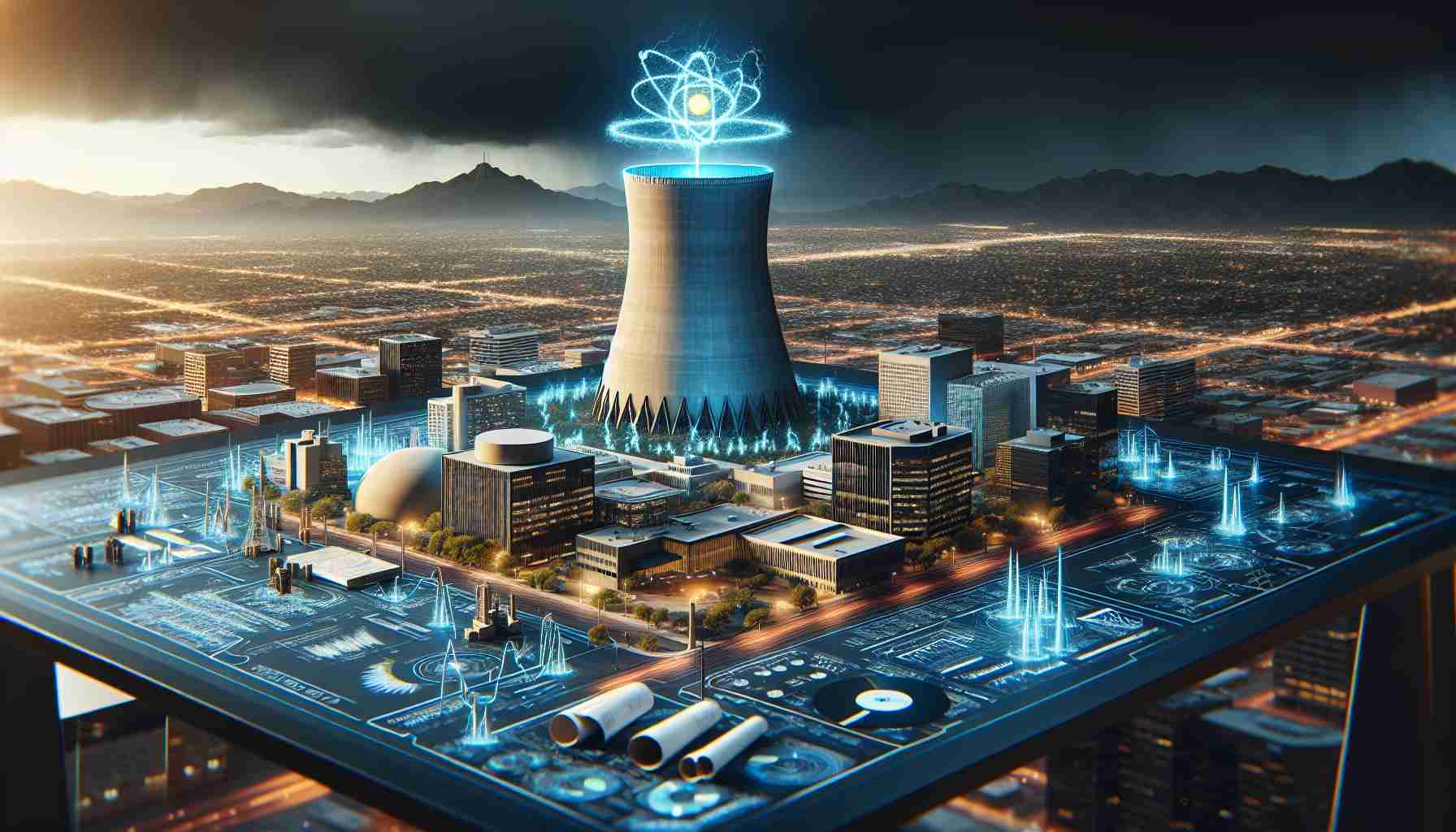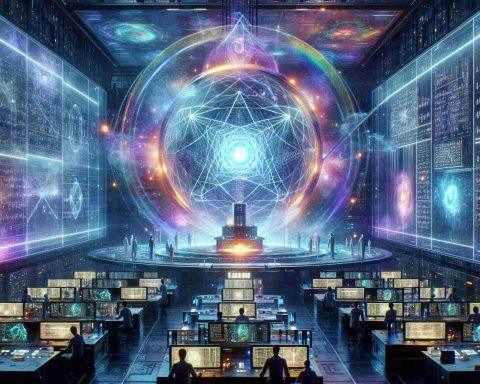- Tucson Electric Power (TEP) is collaborating with Arizona utilities to explore nuclear power as a future energy solution.
- The initiative has sparked debate, with proponents highlighting nuclear’s reliability and zero carbon emissions.
- Critics argue that funding should prioritize existing renewable technologies over nuclear ventures.
- TEP is committed to a diverse energy mix, including solar and battery storage, as seen in projects like Wilmot I.
- Concerns remain about potential delays and costs that could impact nuclear energy development.
- The Department of Energy has proposed substantial grants for small modular reactors, raising the stakes for TEP’s exploration efforts.
- The outcome of TEP’s energy strategy will significantly influence Tucson’s energy future.
Tucson Electric Power (TEP) is igniting conversations about the future of energy by teaming up with two major Arizona utilities to explore the potential of nuclear power. This ambitious initiative has stirred a heated debate among environmental advocates, who are urging a shift toward renewable energy sources instead.
Recent developments indicate that TEP, along with its partners, has officially sought a federal grant for research into new nuclear generation. Advocates for nuclear energy point out its reliability and zero carbon emissions, painting it as a vital player in the quest for sustainable energy. However, critics slam the idea as a costly gamble, arguing that resources would be better spent advancing renewable technologies that are operational today.
The discussion has grown even more intense as TEP’s spokesperson emphasized this initiative is part of a broader mix of energy solutions, which also includes ongoing investments in solar and battery storage capabilities. Notably, TEP is already developing facilities like the Wilmot I, which boasts significant solar power combined with battery storage.
But as the clock ticks toward potential milestones in nuclear energy, opponents fear delays and rising costs could cripple this venture before it takes off. With the Department of Energy dangling nearly $900 million in grants for small modular reactors, the stakes are high.
The key takeaway? As Tucson navigates this complex energy landscape, the balancing act between nuclear exploration and a robust push for renewable resources remains a hot topic. What path will TEP ultimately choose? The energy future of Tucson is watching closely.
Exploring Nuclear and Renewable Energies: Tucson’s Future in the Balance
The Future of Energy in Tucson: Nuclear Power vs. Renewables
Tucson Electric Power (TEP) has initiated a significant dialogue about the future of energy in Arizona by collaborating with major utilities to explore nuclear power generation. This exciting development has sparked intense discussions among environmental advocates and energy stakeholders about the efficacy and sustainability of nuclear energy compared to traditional renewable sources.
Key Developments
1. Federal Grant Application: TEP and its partners have officially submitted a request for a federal grant aimed at researching advanced nuclear generation technology. This is a crucial step in determining the feasibility of small modular reactors as a viable energy source.
2. Support for Nuclear Energy: Proponents argue that nuclear energy is essential due to its reliability and zero carbon emissions, making it an attractive alternative during the transition to cleaner energy solutions.
3. Criticism and Concerns: Critics argue that investing in nuclear power is financially risky, suggesting that funds would be better allocated to enhance existing renewable technologies, such as solar and wind.
4. Broader Energy Mix: TEP emphasizes that their energy strategy encompasses a diverse array of solutions, including significant investments in solar energy and battery storage, highlighting projects like the Wilmot I facility, which integrates solar power with energy storage capabilities.
5. Potential Risks: The initiative is not without its hurdles; delays in project timelines and rising costs could hinder nuclear development, leading opponents to call for a more focused investment in renewable energies that deliver immediate results.
Relevant Insights
– Market Trends: The global energy market is increasingly focusing on decarbonization. While nuclear power offers a low-emission alternative, the rise of renewable technologies continues to dominate investments, reflecting a growing preference for decentralization and sustainability.
– Economic Forecasts: The potential economic impact of expanding nuclear capabilities includes job creation in high-tech energy fields, contrasting with the more established renewable sector, which is also rapidly growing and increasingly integrated into the job market.
– Sustainability Considerations: The conversation surrounding nuclear energy often overlooks the safety and waste management aspects, which remain critical for public acceptance and regulatory compliance.
Frequently Asked Questions
1. What are the advantages of nuclear power over renewable energy sources?
Nuclear power provides a consistent and reliable energy output compared to intermittent renewable resources. It can operate at full capacity around the clock, reducing dependency on energy storage systems.
2. Why do critics oppose investments in nuclear energy?
Opponents highlight the high costs of nuclear projects, potential delays, safety concerns, and the long-term challenges associated with nuclear waste management. They advocate for immediate investments in renewable resources that can deliver results more rapidly.
3. How is Tucson Electric Power planning its energy future?
TEP aims to strike a balance between nuclear exploration and expanding renewable energy infrastructure. Their current projects include enhancing solar power generation and integrating battery storage systems, ensuring a diversified approach to energy supply.
Suggested Related Links
TEP – Tucson Electric Power
U.S. Department of Energy
Nuclear Regulatory Commission
Tucson’s energy landscape is at a transformative crossroads, and the decisions made now regarding nuclear and renewable investments will shape its future.
The source of the article is from the blog maltemoney.com.br












